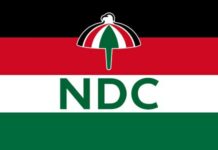France and Ghana has held a forum to discuss the public service models of the their respective countries.
The discussion took place on May 5, 2022, where the French Embassy in Ghana and the Ghana Institute of Management and Public Administration (GIMPA) outlined their models and how both countries could learn from each other.
The purpose was to provide a platform to discuss the French and Ghanaian models of public administration in a comparative light and to reflect on their present and future challenges.

The forum, which was hugely attended by some students of University of Ghana and GIMPA, allowed for important discussion on administrative models, as institutions are what make a country stable and prosperous, beyond the constant change in leadership.
The French Ambassador to Ghana, H.E. Anne Sophie Avé, presented the foundations of the French administrative model and the rules and regulations that apply to French civil servants to ensure the independence, transparency and accountability of the civil service. Professor Kingsley Agomor also presented the achievements and challenges of the GIMPA model since Ghana’s independence.
FRENCH INSP
The conference also marked the creation of the French National Institute of Public Service (INSP). The INSP, introduced on January 1, 2022, is the new public benchmark dedicated to the recruitment, initial training and continuing training of French senior civil servants.
The INSP takes over from the French National School of Administration (ENA), where several senior Ghanaian civil servants have been trained.
The creation of the INSP was part of the top management reforms introduced by French President Emmanuel Macron, in order to achieve a more efficient, inclusive and attractive top administration.
Specifically, the INSP aims to recruit more diverse profiles. Under the new “talents” programme, 1,700 places will be created in preparatory courses necessary to enter France’s top public service schools for students from disadvantaged backgrounds. These students will be given financial aid and will pass specific entrance exams.
The INSP is responsible for providing senior state executives with initial and continuing training based on new foundations, the consulate said in a statement.
It oversees a common core program for public service schools that train senior executives from all three sectors of the public service and the administration of justice, to ensure common references, improve public action and then better serve French citizens.

The Institute’s mission, as a prestigious training centre for top executives and managers, is to build top-quality academic partnerships (in France and abroad) and to develop France’s international influence, which includes training of international students and welcoming foreign auditors.
In this regard, the INSP and GIMPA wish to strengthen their cooperation in the future.
The INSP has two training programs for international students: A 13-month program for young to mid-career civil servants: training in Strasbourg and a 3-month internship, which can be supplemented by a Master’s degree in Public management; An 8 month program for experienced executives of foreign public administrations, occupying positions of responsibility and endowed with a potential for development and influence.
This program allows them to become familiar with all facets of public management in France and in Europe. The reform of the French top administration was presented to GIMPA, UG and UPSA students and faculty by Antonin Guilhot, a INSP student and political intern at the French Embassy.
A Ghanaian civil servant in training at the INSP also spoke at the conference to share his experience with the audience.









